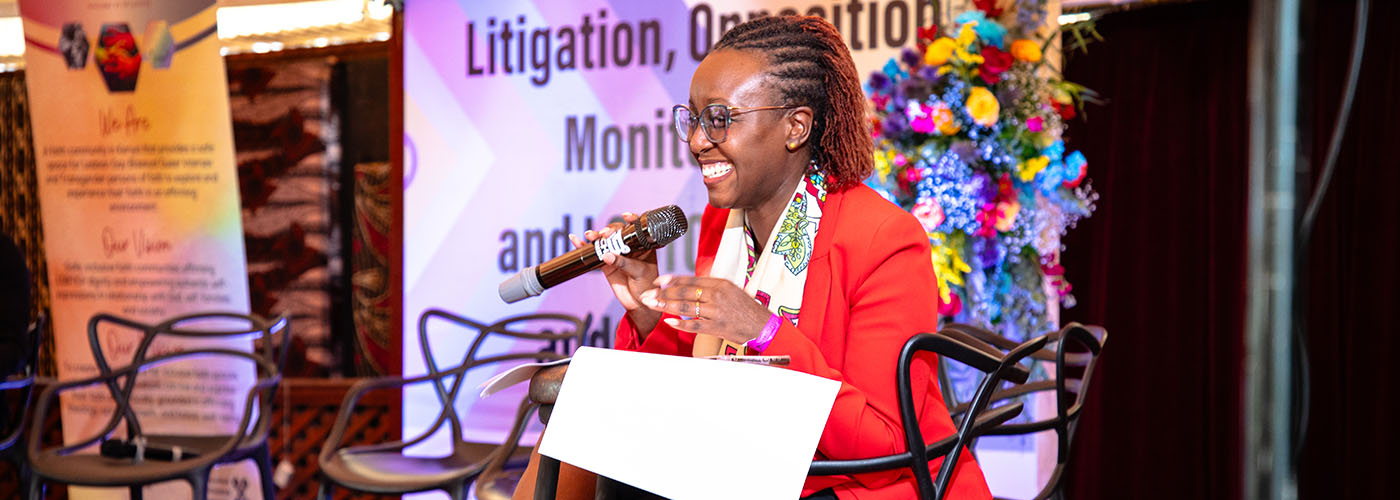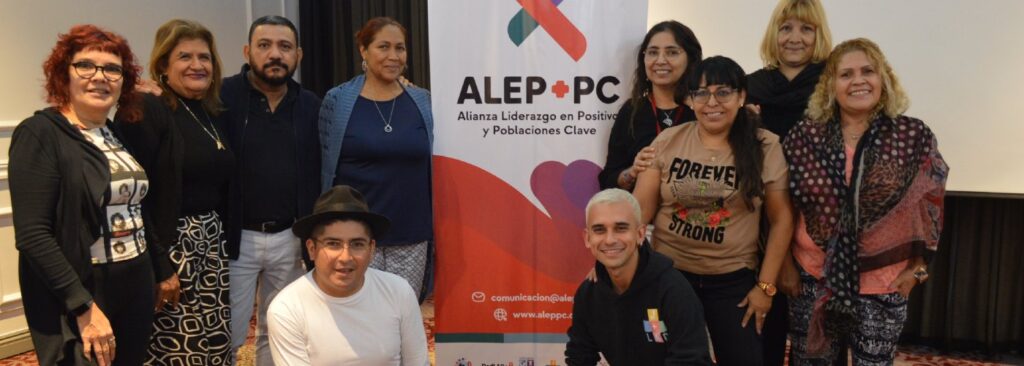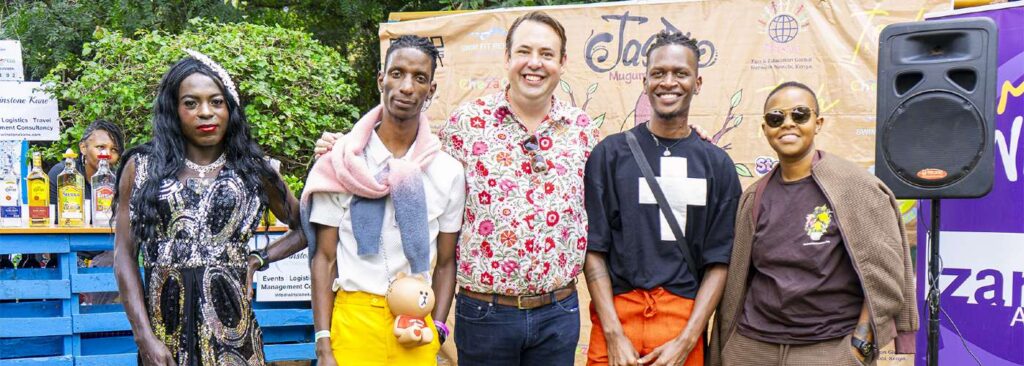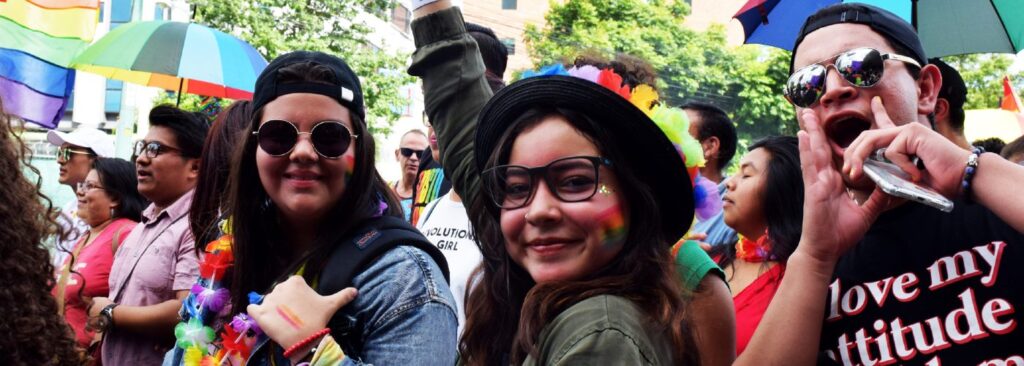The global LGBTIQ+ movement is being systematically undermined, not just by eroding legal protections and escalating political harassment, but by the sudden withdrawal of vital funding. What began in the U.S. as a flurry of policy changes under Donald Trump has become a global flood of cuts, bans, and deliberate dehumanization. This week in Nairobi, prominent ultra-conservative campaigners from around the world, who are against abortion, transgender and LGBTIQ+ rights, and sexuality education, are speaking at the Pan-African Conference on Family Values.
By Susan Githaiga, Global Program Manager of Free to be Me
Grassroots organizations, which are the backbone of queer survival and resistance around the world, are struggling to stay afloat. The global funding squeeze will and has already started to directly impact frontline organizations, forcing them to scale back, shut down programs, or close entirely.
In South Africa, support groups have slashed services due to the sudden disappearance of U.S. aid. In Mali, new laws criminalize LGBTIQ+ identities altogether. These regressions are not organic; they are engineered as American evangelicals continue to export anti-LGBTIQ+ ideologies across Africa.
In Europe, trans rights are being rolled back under the guise of biological essentialism, most recently validated by the UK Supreme Court’s ruling to exclude trans women from the legal definition of “woman.” In Hungary, LGBTIQ+ events have been constitutionally banned.
In the U.S., Trump is once again weaponizing his platform to push bans on gender-affirming care for minors and cut LGBTIQ+ research funding, all under the banner of “protecting children.” Elon Musk, once a corporate ally for LGBTIQ+ rights, now echoes far-right voices and launches transphobic tirades in tandem with personal attacks against his own daughter.
This is a coordinated, well-funded, and transnational anti-rights campaign to strip queer people of rights, dignity, and resources. At Hivos, we see this backlash as a call to deepen our commitment to centering queer voices, challenging harmful narratives with data and lived experiences, and working to strengthen the LGBTIQ+ movement globally.
We cannot fight this movement with performative IDAHOBIT posts on social media alone. We need action, international solidarity, and a recommitment to protecting queer lives.
What’s at stake?
This isn’t about identity politics. It’s about survival.
When the USAID funding freeze came into effect in early 2025, the Hivos-led EU SEE network conducted a survey on the impact of the freeze on civil society organizations around the world. Most surveyed organizations are reducing staff, scaling down programs, or reallocating budgets.
OutRight International found that over 120 grants to LGBTIQ+ organizations in 42 countries were suspended following U.S. aid freezes with devastating consequences: lost access to trauma care for survivors of gender-based violence, the dismantling of HIV prevention networks, and increased discrimination, arrests, and violence.
Grassroots mutual aid groups in East Africa, working with minimal resources, have pioneered radical community models by providing housing, legal aid, and emergency support in the absence of government protection. These groups don’t just serve communities; they are the communities. Their defunding is not only cruel; it is a death sentence for countless individuals.
Economic justice and LGBTIQ+ liberation
Justice isn’t just legal, it’s economic. In most contemporary societies, justice is also closely tied to economic power. Around the world, LGBTIQ+ people face disproportionate levels of poverty, unemployment, housing insecurity, and workplace discrimination. Economic inclusion shouldn’t be an afterthought to queer rights around the world – it is foundational to their survival and dignity.
And yet, reports from OutRight International, the Williams Institute, and the World Bank affirm that LGBTIQ+ economic inclusion benefits society as a whole. When the queer community is excluded, the human and financial costs are steep. The economic marginalization of LGBTIQ+ people lowers GDP, deepens inequality, and entrenches cycles of sexual and gender-based violence. So we also need systemic change that includes LGBTIQ+ people in broader economic opportunities – from education to employment and entrepreneurship opportunities.
There are strategies to bring LGBTIQ+ inclusion to the forefront. At Hivos, through the Free to be Me program, we have seen successes in LGBTIQ+ economic inclusion from the establishment of the Queer and Allied Chamber of Commerce of Africa to our partners in the Philippines successfully supporting the Lapu-Lapu city council’s Anti-Discrimination Ordinance. Positive developments like these are just one part of creating safer social, political, and legal environments allowing LGBTIQ+ people to have equal access to resources, opportunities, and decision-making.
What do we do now?
If governments won’t lead, then LGBTIQ+ communities and our allies must.
- Philanthropic foundations must step up. Some foundations have pledged to increase support, but the momentum pales in comparison to the urgency. Funding must be flexible, long-term, and led by community input.
- Media and influential individuals must confront hate speech head-on. Political leaders like Donald Trump aren’t “debating” gender identity — they’re inciting division and violence. Do not let bigotry define the narrative. Bigotry is not a “debate” its incitement
- Corporations must put money where their rainbows are. Pride-themed products without meaningful reinvestment into queer causes are nothing more than branding and pinkwashing. Corporations must ensure LGBTIQ+ employees are supported and protected.
- Solidarity demands more than words, donating directly to grassroots organizations and mutual aid funds. Speak up. Pressure local leaders. Boycott non-inclusive organizations and corporations. Demand change.
- Bring LGBTIQ+ voices into policymaking spaces. When the LGBTIQ+ community participates in the legislative process – and when advocates and organizations receive the funding they need to support long-term, transformative impact – the potential for positive change and inclusivity is endless.
Continuing the fight from previous generations
Queer communities have always faced adversity with grit, love, and radical imagination. But resilience is not infinite. Without funding, protection, and political will, resilience can end up in burnout.
Let’s do more than celebrate the queer community – let’s mobilize. We can take inspiration from the 2024 protests in Peru against a law classifying transgender people and other LGBTIQ+ people as mentally ill, which succeeded in getting the law scrapped within a month. The future of LGBTIQ+ rights will not be decided in courtrooms or campaign rallies alone. It will also depend on whether we show up right now, with our money, our voices, and our actions. Because when aid is cut, we don’t disappear. We organize.
Originally published in the Washington Blade.





